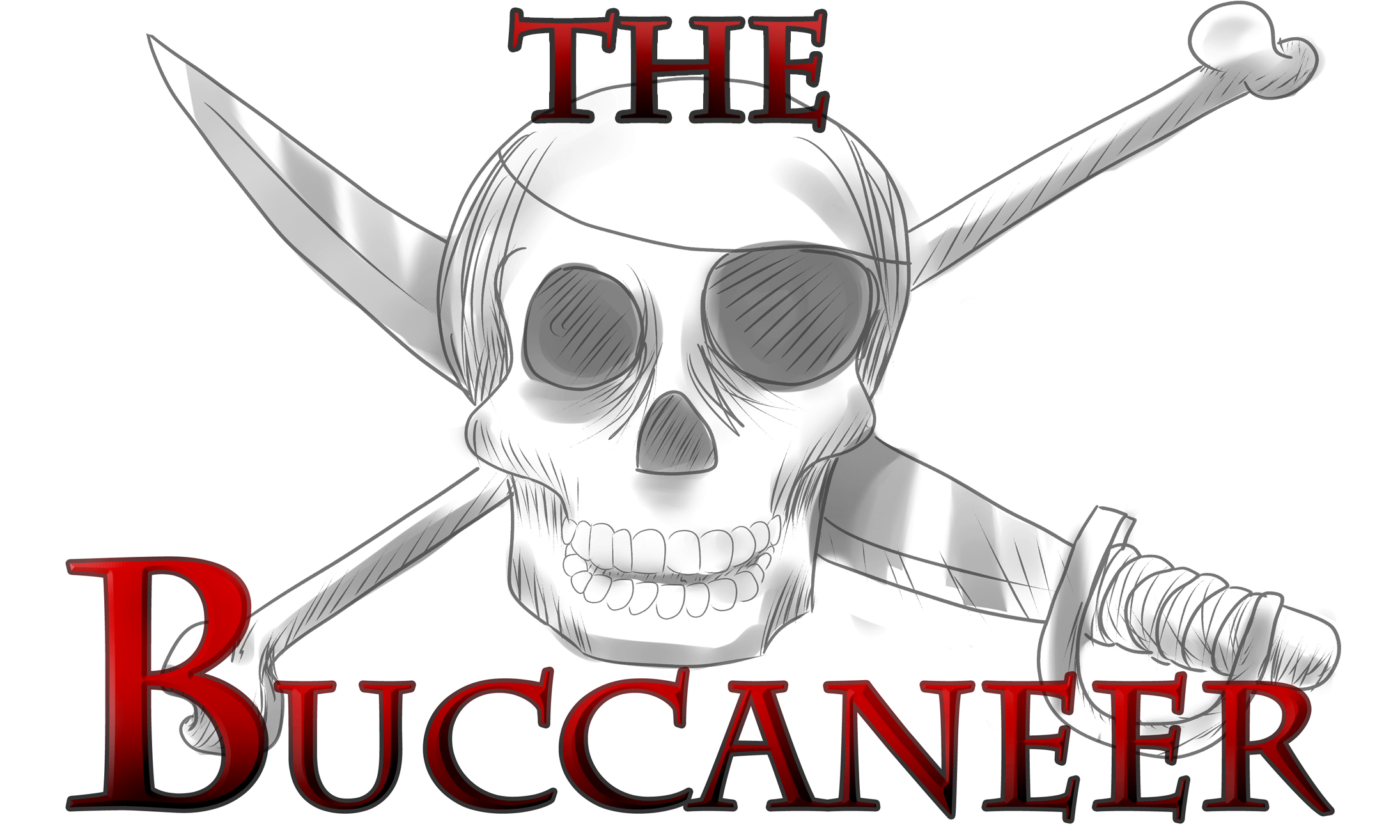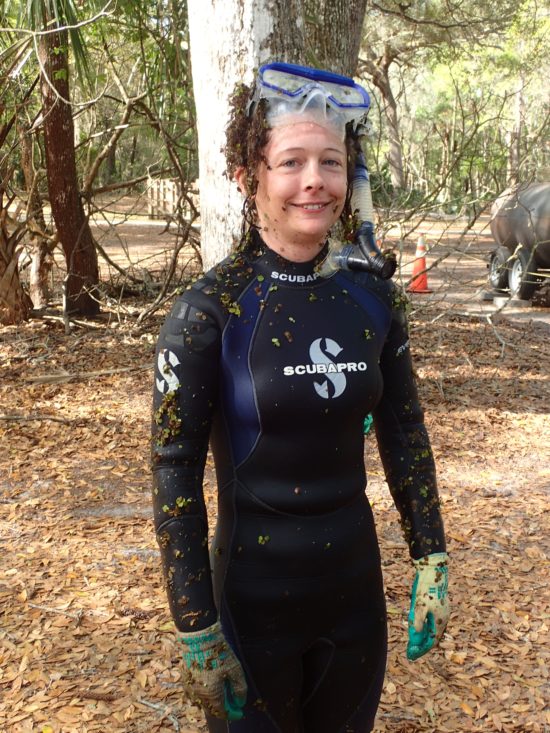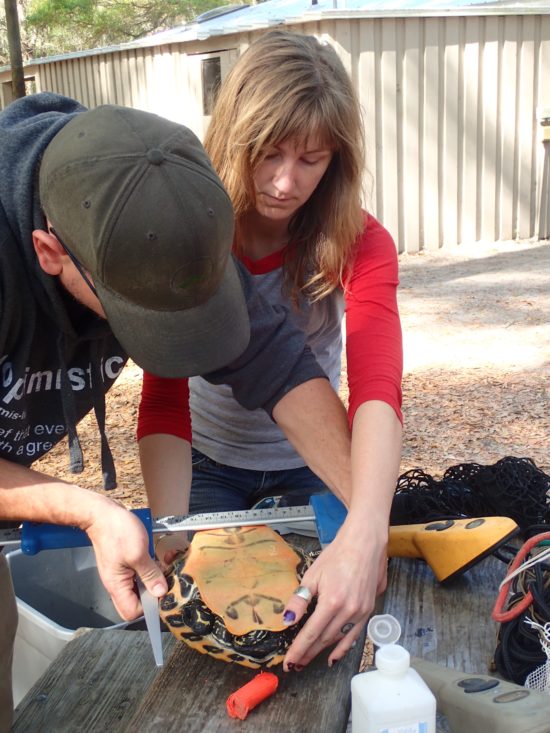
By Sarah R Baker

Environmental scientist, Lisa Sedgwick
Lisa Sedgwick, 34, is working toward her Environmental and Forest Science major.
Her grand hopes, be- yond transferring to the University of Washington, include working at the home of her long-term internship, Merrill & Ring, a local tree farm.
“I like being out in the forest, so I figured why not get a job where I can be out with my dog and measure trees and then go back to the office whenever I want to,” said Sedgwick.
She is currently working on her Associate of Science transfer degree, and is conducting a research project, “The Role of the Red Alder as a Nitrogen Disperser,” through the Honors Program.
Sedgwick is also president of the Science, Technology, Engineering and Mathematics, STEM, club.
She is always looking for new members. STEM club meets Tuesdays at 12:45 in room M221 in Keegan Hall.
On Professor Brian Hauge’s annual trip to Central Florida with the North American Freshwater Turtle Research group, someone on her team caught the state- record snapping turtle that weighed around fifty pounds, according to Sedgwick.
She remarks that the most memorable part for her was getting to pit tag and tattoo numbers on the soft shell turtles. Pit tagging and tattooing numbers serve as a method of identifying turtles if they are caught again or monitored in the future.
For Sedgwick, the biggest obstacle in attaining her ma- jor so far has been the subject of mathematics.
“It’s hard for me, but as long as you stick to your goals and stay motivated, anyone can achieve anything.”
Astrobiologist, Seren Weber
By Ryan Fournier

Seren Weber, 29, is working toward an Associate of Science with Honors degree. She is a member of the
STEM club, as well as the Student Physicist Society. She also attended the recent turtle study trip in Florida.
Weber’s efforts until now have mostly concerned farming and restoration. She worked as a mycologist, farming culinary and medicinal mushrooms for eight years in Seattle, and spent five years farming organic heirloom plant varieties in Snohomish County. She has done restoration work with Washington Conservation Corps, an affiliate of Americorps, from which she has received scholarships for school. “I would recommend the Americorps program to any student who has the time to do it,” said Weber.
Weber’s academic energy is now focused on in astrobiology, which includes the study of life and the potential for life outside earth, as well as the origins of life on earth. After next year, Weber hopes to transfer to the University of Washington in Seattle, where she’ll work toward a Dual-Title Ph.D. She would study astrobiology alongside a second field, such as biology, environmental science, or mathematics. That second field would then be directed as a specialty toward the study of astrobiology.
At the Cape Canaveral Air Force Station in Florida last year, Weber witnessed the launch of a rocket carry- ing the OSIRIS-REx craft, which is destined to collect a soil sample from the asteroid Bennu. Weber plans to be near the end of her studies at UW when the sample returns to earth. “I’m really hoping that I can get close to the sample because it would be kinda full circle. I saw the Rocket take off!”
